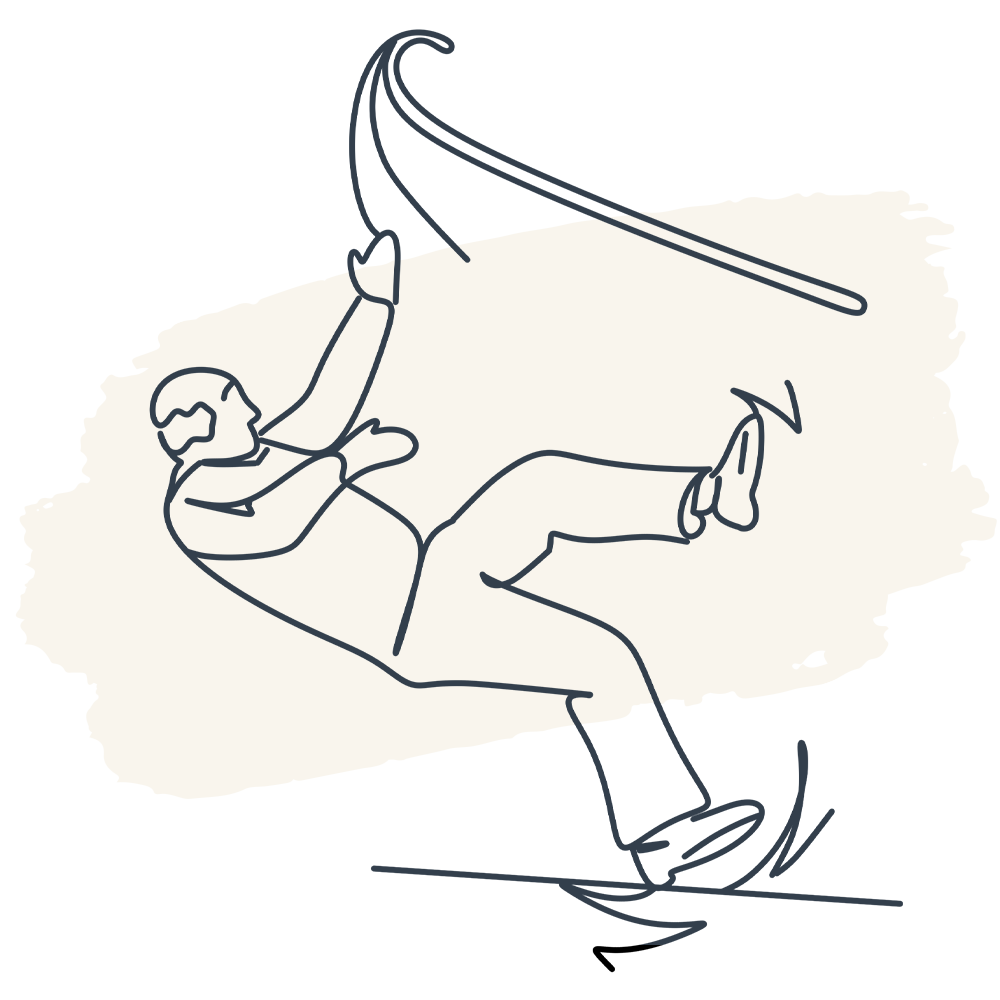Medically Reviewed by: Dr Jackie Gray, Public Health Expert and Retired GP
(Carents Trusted Reviewer Programme – Last reviewed July 2025)
What we'll cover on this page:
Understanding falls in older adults
A fall in an older person, even without any related injury, should always be taken seriously.
A fall can be a symptom of a new or worsening health problem. It is a call to action – an opportunity to prevent another fall, perhaps with more serious consequences.
Anyone can fall, but the chances of falling increase with age and someone who has had a fall is more likely to fall again. Each year, one in three people aged over 65 have a fall and over half of those over 80 have a fall.
But falls are not inevitable and research indicates that for older people living at home, around 30% can be prevented.
A fall can have serious consequences
The chances of a fall causing serious and/or long term health problems increases with age. Falls are the leading cause of accidental death in older people.
Falls cause injuries such as bruising, cuts, head injuries and fractured bones. The likelihood and severity of injury relates to a variety of factors including bone health, frailty and low body weight.
Public Health England data indicate that 5% of falls result in a fracture. The most common fractures are to the wrist and the hip. Hip fractures can have a very serious impact on survival, disability and independence.
People with low bone mineral density are more likely to experience a fracture following a fall. Osteoporosis is a common cause of low bone mineral density.
Unsurprisingly, many older people fear falling and falls can have a major impact on their mental health. Falls can cause older people to lose confidence in going about their day to day activities leading to depression, isolation or loss of independence.
Causes of falls
Falls are often the result of the interplay between a person, their environment and their behaviour. There are many factors which can increase the likelihood of falling and these include:
- Muscle weakness
- Poor balance
- Visual impairment (see our article on sight problems in older people)
- Medication – a combination of medicines or specific medicines which affect the mind, balance, or blood pressure
- Hazards in or outside the home – Six out of ten falls happen in the home and many of these relate to avoidable hazards such as poor lighting, loose cables or rugs
- Some specific medical conditions, which might make a person more likely to fall – common examples include a drop in blood pressure on standing, dementia, incontinence, frailty (see our article on frailty) – your GP will explore these and other possibilities and take appropriate action
- Alcohol – older people are more likely to experience unsteadiness after drinking alcohol
- Clothing – badly fitting shoes, trailing clothes, worn out slippers, walking in socks or tights on hard floors can all cause avoidable slips, trips, and falls
What can you do to prevent falls?
Fortunately, there is plenty you can do to minimise the risk of a fall or serious injury. It is common for local health and/or social services to help with a lot of actions to prevent falls including covering some of the additional expenses. Local arrangements will vary depending on the situation – at home a primary or community care team or local adult social care service could be involved. Hospital discharge arrangements will often include arrangements to minimise any future risk of a fall.
Want to know more?
A fantastic leaflet, jointly developed by Public Health England, the Chartered Society of Physiotherapists and Saga
An NHS approved online resource with advice about falls, exercises and hazards around the home
WHAT OUR CARENTS SAY
Medically reviewed by Dr Jackie Gray, July 2025
Stay in touch with The Carents Room
Stay informed and supported on your carenting journey with our newsletter, designed to provide you with:
- Practical Tips: Get expert advice and useful tips to help you navigate the challenges of caring for your elderly relatives.
- Latest Updates: Stay up-to-date with the latest news, research, and developments in health and care services.
- Community Insights: Hear from fellow carents, sharing their experiences and stories to support you.
- Exclusive Resources: Access special content and resources designed to make your role as a carer easier and more effective.
Join our community today and make carenting a smoother, more informed experience. Simply enter your email below to start receiving our carefully curated content straight to your inbox.
